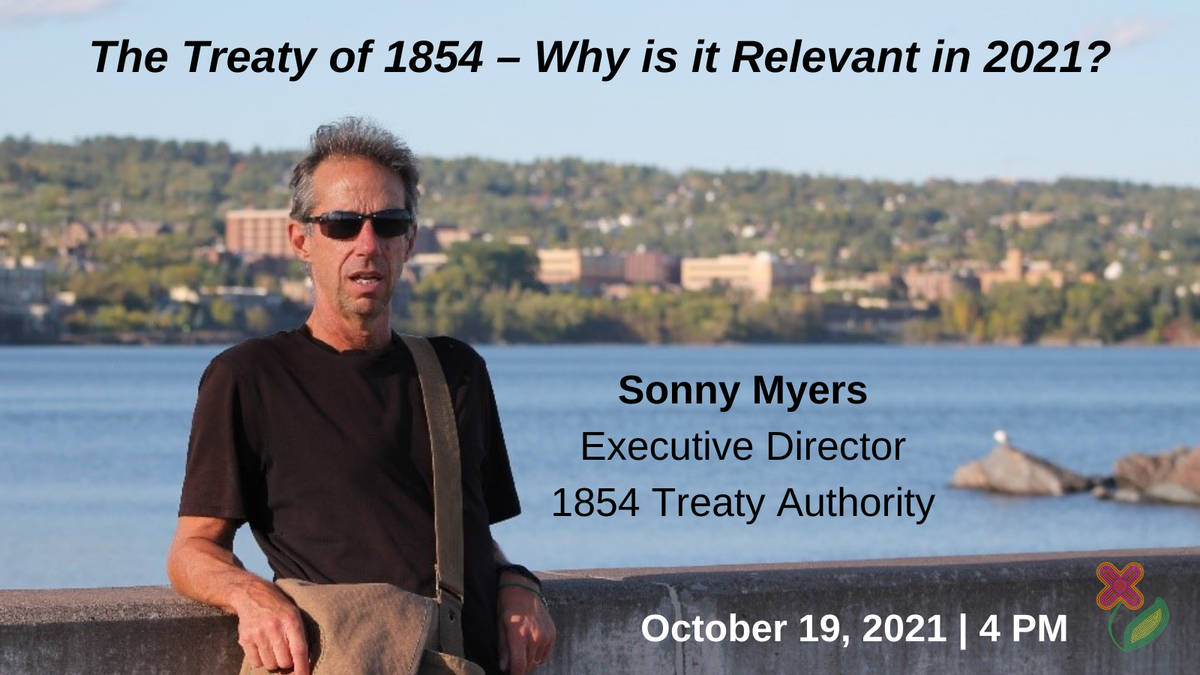
October 19, 4-5 PM | 4:00pm - 5:00pm CDT
The Department of American Indian Studies Indigenous Environmental Stability and Traditional Knowledge Seminar Series presents: Sonny Myers, Executive Director of the 1854 Treaty Authority.
Sonny Myers will talk about Treaty Rights in general, and the importance of Treaty Rights to Tribal nations in the 1854 ceded Territory. Sonny, who is an alum of the University of Minnesota will also talk about the path that led him to his position, and the programs and services provided by his organization.
Sonny Myers is the Executive Director of the 1854 Treaty Authority, an Inter-Tribal organization that implements the off-reservation hunting, fishing, and gathering rights of the Bois Forte Band of Chippewa and the Grand Portage Band of Lake Superior Chippewa in the lands ceded under the Treaty of 1854.
He is an enrolled member of the Grand Portage Band of Lake Superior Chippewa. Born, raised, and living in Duluth, MN, Sonny is a husband, dad, and grandpa, and loves to spend time with his family pursuing the myriad of outdoor activities that living in northern Minnesota offers.
His professional career began upon graduating from the University of Minnesota Duluth with a Bachelor of Arts degree in Biology in 1994. He was hired as an environmental biologist with the 1854 Treaty Authority and in 1996 took the position of Executive Director, the position he is in today.
The Indigenous Environmental Sustainability and Traditional Knowledge Seminar Series hosted by American Indian Studies will provide a series of seminars for the broader UMD community with a focus on environmental science, traditional knowledge, and sustainability by hosting Indigenous scholars and cultural practitioners that couple traditional knowledge with western knowledge systems to address environmental sustainability policies and practices on local, regional, and global scales.